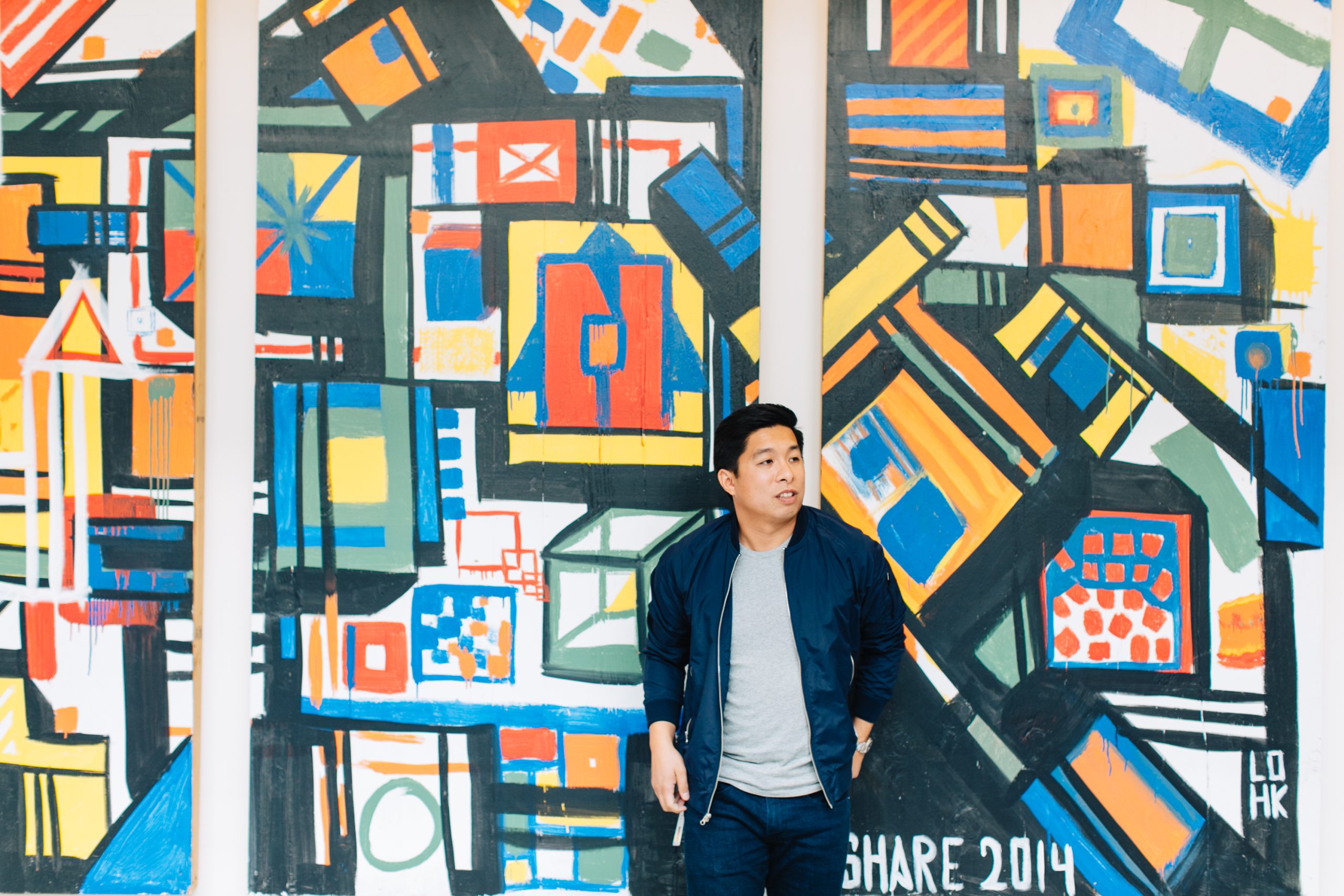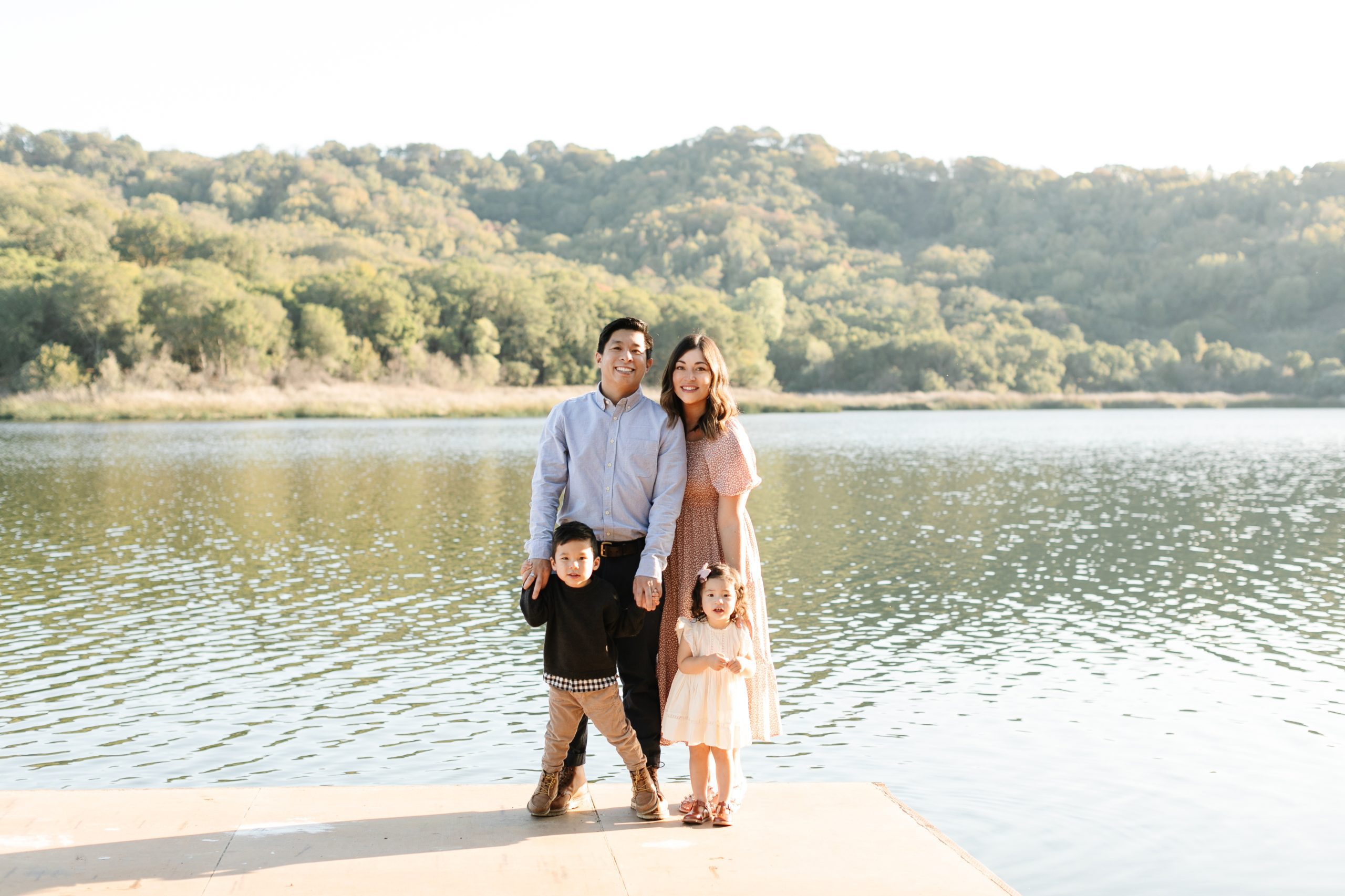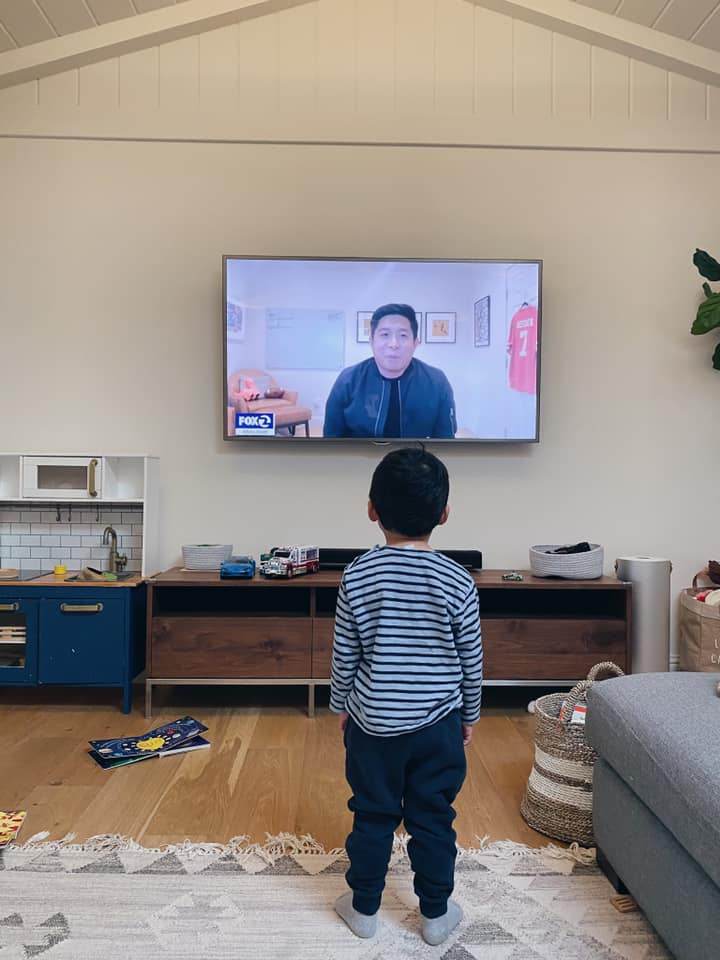After struggling with his ethnicity, highly respected brand and marketing wiz Eric Toda finds new purpose in advocating for the AAPI community.
Growing up in the suburban enclave of Moraga, California, Eric Toda found few who looked like him. And he found out at a very early age how cruel kids can be. On the playground, fellow students pulled back their eyes and teased him with exaggerated accents. They were repulsed by the traditional Asian meals he brought for lunch. He once asked a girl to the homecoming dance, only to be told, “I don’t like Asians.” His public school American history books did not include details about the internment camps to which his grandparents were banished. Nor were there details of the history of Asian American labor. His classmates reasoned that if he wasn’t represented in American history, then he must not be American. He started to hate himself, wishing he were someone else.
Though it has been many years since, these experiences continue to resonate, motivating Toda in his pursuit of racial justice. Today, as Global Head of Social Marketing at Meta, Toda has claimed an international role as a positive voice for the empowerment of the Asian American Pacific Islander (AAPI) community. The former marketing and branding director for companies such as Nike, Snapchat, and Airbnb (among others) recently launched Meta Prosper, the first program of its kind designed to provide training, education resources, and business support to the AAPI small business community. Toda also serves on the boards of the Smithsonian Asian Pacific American Center, The Asian American Foundation (TAAF), and Leading Asian Americans to Unite for Change (LAAUNCH).

HL: What was Meta’s response or direction for you when you started speaking out about AAPI issues?
ET: At the height of the violence and attacks on the AAPI community in 2020 and into 2021, I struggled deeply because it reminded me so much of what happened to my grandfather. I spoke to the leaders with whom I work, saying I needed to do something. But when I was asked by an editor at Adweek to pen a feature about Asian hate, targeted to the Marketing and Advertising industry, I initially said no. I was taught to keep my head down. This behavior is called being the ‘model minority,’ meaning work hard but strive to be invisible. I felt I couldn’t write something; it wasn’t my place, and who was I to speak out? But the leaders with whom I work (non-Asian, White, and Black) said if not me then who? A close friend at Meta (Jed Clevenger) saw me struggle with what was happening to my community, and he saw me struggle with what, if anything, I should do. He sent me this: “It is not the critic who counts; not the man who points out how the strong man stumbles, or where the doer of deeds could have done them better. The credit belongs to the man who is actually in the arena, whose face is marred by dust and sweat and blood; who strives valiantly; who errs, who comes short again and again, because there is no effort without error and shortcoming; but who does actually strive to do the deeds; who knows great enthusiasms, the great devotions; who spends himself in a worthy cause; who at the best knows in the end the triumph of high achievement, and who at the worst, if he fails, at least fails while daring greatly, so that his place shall never be with those cold and timid souls who neither know victory nor defeat.” Theodore Roosevelt, April 23, 1910
So I entered the arena and wrote my Adweek piece: My People are Dying in Silence – and I’m Here With a Megaphone. It continues to be the highest read op-ed in Adweek’s history, and something that changed my DNA forever. Since then I have been supported as a strong voice for the community and I’m proud to be amongst the many great leaders at Meta advocating for change in culture and society.
Tell us more about your grandfather. How did his stories affect you?
I was 14 when I visited my grandfather in the hospital after he was targeted in a racially motivated attack. He was badly bruised, beaten, and left for dead. He told me that ‘this is what happens in this country.’ He told me how his family’s farm in Watsonville was seized by the US government after Pearl Harbor; his family was sent to the internment camps in Utah and Arizona, and ultimately not let back into the state until after the war ended. He told me how he enlisted to fight for the United States Army alongside the same soldiers that took his family from their farm, put them in camps, and pointed guns at them. I asked him why he would even consider fighting for the same country that penalized him for being Japanese, despite being born in California, being a law abiding citizen, and not being able to speak Japanese. “Because I’m American,” he said. Just as his father was, just as my father is, and just as I am. When people ask me where I’m from, or my country of origin, the answer is easy. The United States of America. And my entire fight carries what my grandfather wanted for his family, and what he would want for my family. That whoever is reading this, when you close your eyes and think of Americans, you think of us.
Your good friends while growing up were proud in claiming they did not see you differently than themselves. At what point did you realize that they meant well, but that they didn’t ‘get it?’
You surround yourself with people who are more understanding, even if they say things like “I don’t see you as an Asian person; you’re a white person like me.” You feel like you did it; you assimilated with someone that doesn’t point out your differences, that sees you for you, and years later you realize even that wasn’t the right approach. It took meeting my wife, who is white, to be proud of who I am. An Asian American. Growing up in Seattle, she was surrounded by different people. When I met her, she celebrated that I was Asian and made me proud to be who I was. In turn my drive to assimilate diminished each year we were together to the point where it was no longer an issue. My beautiful wife, with all the perspective in the world, gave me the confidence to be me.

Why did you feel it necessary to speak out publicly and what instigated your activism?
Simple, not many people were speaking out at the time. Many were silent especially in the business world which employs a tremendous amount of Asian American leaders. Many operated within our own community, not outside of it, to advocate for it. That’s what I hoped to accomplish – to bring more than just ‘ourselves’ into the conversation and to exercise what I was uniquely capable of doing because I’m from Moraga and bring white allyship into the fold. Then I strove to bring black allyship into the fold, and ultimately anyone that would listen.
There is a behavior that plagues minority communities and that’s ‘sticking to ourselves.’ Being from Moraga, and not having an ‘ourselves,’ you are forced to assimilate, to meld, and to expand into other communities for the literal feeling of belonging. I used this knowledge and behavior to extend my message far past the walls of our community because I’ve never just ‘stuck to my own.’
Where, and with whom, have you appeared publicly to discuss AAPI issues?
Too many to count, and hard to believe no one is sick of me yet! I did an Instagram live with actor Henry Golding, then did a big media sprint on NBC, WGN, CBS, KTVU, ABC, Wall Street Journal, CNN, CNBC, amongst many others. I’ve twice spoken in front of Congress. And by the time this runs, I can say I spoke in front of the President of the United States in the White House. But the most meaningful interview I ever did was my first on-air live interview on KTVU with Heather Holmes, during which my wife gets a picture of my son watching me live on TV, not talking about my job, my awards, my accolades, etc. but talking about people that look like him. Fighting for them. It was then that I realized, if the only thing he and his sister remember about me is just being a businessman or a marketer – then I didn’t do a great job with the rest of my life. I want them to remember me for this. The fight, the advocacy, and hopefully the change I was able to cause. It’s still my favorite picture to this day.

Please tell us about the initiative you recently introduced – Meta Prosper. What does it entail and what was your role in shaping the program?
Meta launched a new program to support the AAPI small business community called, Meta Prosper. Meta Prosper is the first of its kind, and designed to bring training in (Chinese, Hindi, Tagalog, Vietnamese, Korean and Japanese), education resources, and business support to the API small business community so they can scale and reach new growth opportunities.
Keep in mind that this is a community still struggling not just because of the pandemic but because of the rhetoric, attacks, and violence. A community for generations that has been invisible. Meta Prosper is designed not just to support their ambitions, but hopefully provide visibility and amplification so they can grow and…well…prosper. I’m proud to be the Head of Meta Prosper, a program close to my heart, and one we designed with the vision to make a big impact.
What are your ultimate goals in serving the AAPI community?
That when you close your eyes and hear the word ‘American’ you see us – you see my kids.
